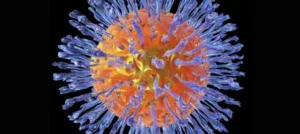Often, some parents notice an unusual character with their child; the child finds it very hard to communicate and form relationships with other kids, suffice it to be that the child faces a great challenge with social skill. Conditions characterized by these features above are always no short of autism. Not surprisingly, parents of such child do not sit well with such characters and may wonder what could have caused it.
Research has shown that women with the active genital herpes caused by the Herpes Simplex Virus type 2 (HSV-2) are more exposed to the risk of giving birth to a child with autism. In a more narrow sense, the odds of giving birth to a male child with the Autism Spectrum Disorder (ASD) are doubled when the mother has an active genital herpes virus during the pregnancy. This may not be disputed to an extent because the herpes simplex virus type 2 infects about one out of every five U.S women within the child-bearing age, thereby underscoring the fact that genital herpes could be active in such women. This causes the birth of a child with the autism spectrum disorder.
The link between the active genital herpes in pregnant woman and autism in their offspring, especially male child may not be overlooked. Research shows that not all women that are infected with the HSV-2 give birth to a child with autism; rather genetically predisposed women are at a higher risk of giving birth to an autistic child.
The link between the genital infection in the womb and autism is not as a result of direct infection of the fetus, rather the mother’s immune response to infection, this causes neurodevelopment problems. Research by the Norwegian and U.S scientists proposes that there is a link between autism spectrum disorder in an offspring and maternal anti-herpes simplex virus 2 antibodies. They suggested that the development of the central nervous system of the fetus may be disturbed by the mother’s immune response to HSV-2. In a bid to identify the actual link between autism and a mother with the genital herpes virus, five pathogens known as torch agents were analyzed. These pathogens are Toxoplasma gondii, Rubella virus, Cytomegalovirus, and the HSV-1 and 2 and can cause miscarriage or defects. The researchers examined the blood samples gotten from 412 mothers of different children having the autism spectrum disorder, they also took the blood sample of 463 mothers of different children that do not have the ASD but enrolled in the Autism Birth Cohort (ABC). Samples were taken two times, one during the mid-pregnancy and another at birth, these samples were tested for the torch agents, and it was found that the HSV-2 has a high level of antibodies. This test defines that developmental and behavioural problems in children can be associated with activation of the mother’s immune system from the early stage to the mid stage of the pregnancy. Although the ASD can be seen as affecting children as a whole, it is more predominant in male children, leaving the females almost out of the issue.
The rate at which herpes virus is on the increase may leave one thinking that very soon, all the infants will have autism. This is not very true because the autism spectrum disorder mostly affects male, and the HSV-2 virus becomes relatively inactive after its first outbreak. It is due to the diminishing frequency of outbreak caused by the body’s immunity to the virus.
While commending the idea that environmental and perhaps genetic factors contribute to the ASD, it should not be disputed that immune activation and inflammation also poses a high risk of ASD in infants. HSV-2 is undoubtedly one virus that holds a great potential of causing ASD in children.
It is worthy of note that the HSV-2 virus is a sexually transmitted disease that has no complete cure, suffice it to be that it is a lifetime infection. But don’t get it twisted, it can be controlled by the use of appropriate therapy. Autism in infants has its trace to the HSV-2 in infected mothers, despite the fact that other causes of autism abound, the Herpes virus type 2 is a trigger.








